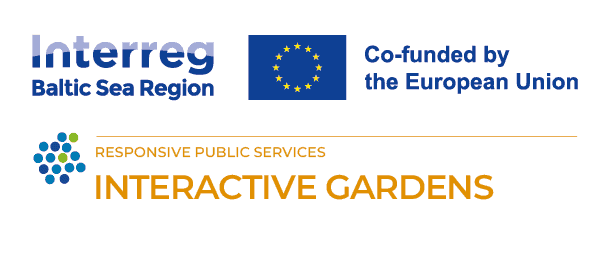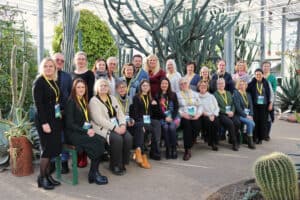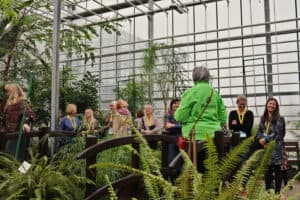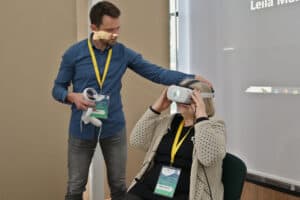
Zemgale Planning Region is launching a new project with a focus on an interactive and accessible green environment
06 February 2024

In order to create an interactive public garden system with innovative public garden services tailored to public health, well-being and education, the Zemgale Planning Region as the lead partner is launching a new Interreg Baltic Sea Region Programme project “Interactive Gardens”.
Last week, project partners from Latvia, Lithuania, Estonia, Finland and Denmark came to the National Botanic Garden of Latvia in Salaspils to get to know each other, discuss the way forward and officially launch the start of “Interactive Gardens”.
“The project will bring together science and research institutions, universities, municipalities and the planning region. Each partner has its own unique experience to share with others. For example, Vidzeme University of Applied Sciences will develop a virtual garden model, partners from Klaipeda have experience of using Japanese gardens in therapy, Aarhus University (Denmark), the Natural Resources Institute (Finland) and the Institute of Horticulture (Latvia) will share their research experiences and opportunities. Several gardens in Zemgale will become more attractive and interactive for visitors,” Sigita Šiļvjane, project manager of the Zemgale planning region, comments on the contribution of partners to the project.

The main objective of the project is to develop an interactive nature garden concept, taking into account social needs and the diversity of local areas. The project results are intended for public, research and educational institutions, community groups using public garden services, stakeholders and their communities, as well as for the strengthening of EU strategies and policies of the Baltic Sea region.
The project aims to develop an interactive public gardens system that will provide information on how to plan and develop improvements. It will provide feedback opportunities in public gardens through remote and virtual visualisation (virtual model garden) and live experience (real demonstration garden). The virtual demonstration garden will include both visualisation of garden elements and environmental processes. Its initial aim is to convey information in an easily understandable manner in order to facilitate the planning of garden improvements and communication between public authorities and community groups. Demonstration gardens will help to explore public needs and offer supportive garden services to a wider audience.

Daina Feldmane, the leading researcher of the Institute of Horticulture, emphasizes that the project should result in a stronger core of gardens in the Baltic States, which would naturally continue to expand even after the end of the project: “With the help of the project, we will be able to expand cooperation networks, become more popular and accessible. We will strengthen the gardens available to the public, the cooperation between them, their users and creators. By using modern technologies, such as virtual and digital tools, we will also become more interesting for the younger generation, because young people perceive information differently.” Daina Feldmane also says that the Institute of Horticulture plans to further improve and modernise the Institute’s garden in order to better disseminate the gained knowledge. A well-maintained and strengthened garden of the institute will also help in future activities such as conducting research in areas such as environmentally friendly cultivation techniques, historical varieties and smart technologies.
Project no. C036 ” Integrated system for interactive public garden development in Baltic Sea Region” or “Interactive gardens” is implemented in the Interreg Baltic Sea region program 2021-2027. The total funding of the project is 2,790,120, incl. ERDF co-financing 2,232,096 euros.





